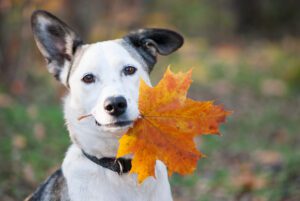Can Dogs Eat Acorns? Risks Every Pet Owner Should Know
Autumn brings cooler weather, beautiful colors—and acorns falling everywhere. While many dogs love to chew on or swallow these crunchy nuts, acorns can pose serious risks to their health.

Why Acorns Are Dangerous
Tannins: Acorns contain tannins that can irritate the stomach and intestines, leading to vomiting and diarrhea.
Obstructions: Larger chunks or whole acorns can get stuck in the esophagus, stomach, or intestines—an emergency that may require surgery.
Toxins: In some cases, ingestion may cause liver or kidney damage.
Signs of Acorn Ingestion
Vomiting or diarrhea (sometimes with blood).
Signs of abdominal discomfort: whining, pacing, stretching, or hunching.
Loss of appetite or excessive drooling.
Weakness or lethargy.
What To Do If Your Dog Eats Acorns
If you see your dog chewing acorns or notice symptoms afterward:
Call your veterinarian immediately. Quick action is the best way to prevent serious complications.
Bring evidence. If possible, bring a sample of the acorns or let the vet know how many might have been eaten.
Don’t wait for symptoms to worsen. Internal blockages or toxin effects can escalate quickly.
Prevention Tips
Supervise outdoor play during fall walks.
Rake and remove acorns from your yard.
Train your dog with the “leave it” command to avoid dangerous snacking.
If your dog has eaten acorns—or if you’re worried about other fall hazards—don’t wait to reach out. Schedule an appointment or give us a call today so we can make sure your pet stays happy and healthy this season.
Recent Posts
About Us
Small description of the practice goes here - maybe pull from the About Us page?
